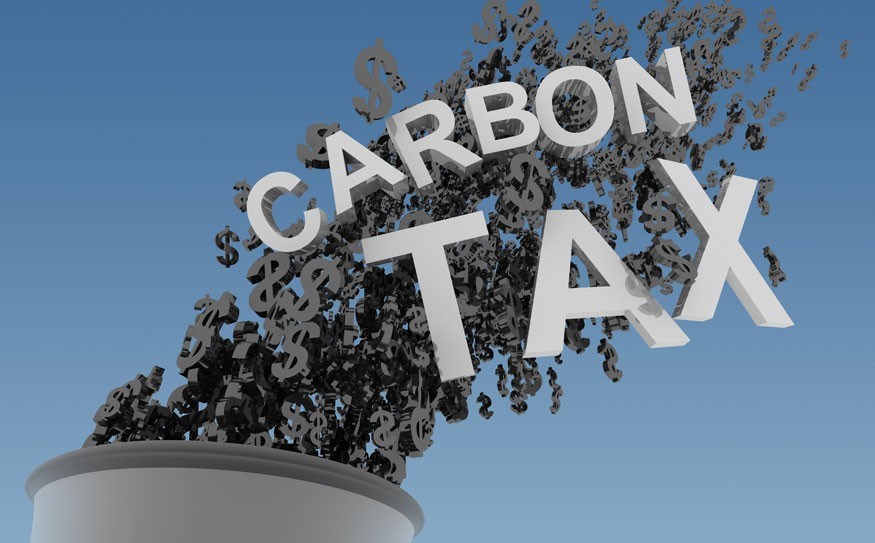Taxes aren't going to be the biggest issue in B.C.'s provincial election — although the Liberals' botched implementation of the HST overshadows the last four years and may be the largest single reason the Liberals are trailing the NDP in all the polls.
Even though the Liberals have promised a five-year freeze on income taxes, and even though the NDP have promised to expand the tax base and raise more revenue from taxes (while giving tax credits for the film industry), taxes aren't going to be the central debate in this election.
Which is a shame, because in many ways the time is right for some really progressive changes to taxes. But instead of looking ahead, British Columbians seem to be relishing the opportunity to fulminate on past Liberal screw-ups over the next four weeks before delivering the coup de grace on May 14.
When the terms "progressive" and "taxes" are used together they will make most people either: a) recoil in fear or, b) doze off. But mention "carbon tax" and some people get genuinely excited. Federal Conservatives get that satisfied, smug look that follows a big bowel movement when they recall Stephane Dion's "Green Shift" in 2008, a carbon tax in all but name that helped end his political career.
Last year the Conservatives launched an ad campaign suggesting that the federal NDP wanted to increase the GST. In fact, the NDP had said nothing of the sort, suggesting only that a committee study options to determine how infrastructure may be funded. This is the level of political debate we have today: taxes are bad; the other party is going to raise them and/or tax some people unfairly.
In 2008, then-B.C. NDP leader Carole James's reaction to the Liberals' introduction of the carbon tax was no less simple: "Axe the tax" was her solution.
Five years on, with most British Columbians now accepting the carbon tax, the rolls are reversed. Liberal leader Christy Clark is proposing to freeze the carbon tax rate for five years; NDP leader Adrian Dix is proposing to broaden its scope to bring in additional revenue.
When we say the carbon tax is accepted, Conservatives and climate change deniers should remember that Auditor General John Doyle's recent scathing report was levelled at the province's efforts to buy carbon offsets through the Pacific Carbon Trust, not at the carbon tax itself.
And other Canadians are also more receptive to the idea of a carbon tax than Conservatives, and many others, think. Research by Environics Research and the Environics Institute shows that 59 per cent of Canadians outside of B.C. would support the introduction of a B.C.-style carbon tax. http://www.environicsinstitute.org/news-events/news-events/canadians-are-ready-for-a-carbon-tax-is-anyone-listening
Keith Neuman, executive director of the Environics Institute for Survey Research, wrote last month in the Globe and Mail: "Research shows that most Canadians endorse the concept of taxes as a legitimate and important way to pay for essential services, and are prepared to pay more when the case can be made. Making this case requires that such a tax: a) addresses an issue or problem on which there is broad consensus that government needs to act; b) can be understood in terms of how it will help address the problem; and c) is applied equitably so that everyone pays their fair share.
"Most Canadians consider climate change to be a serious issue, believe actions are needed to address it, and look to government to take the lead."
This week, a U.S. Republican is in Ottawa where he will tell conference delegates that a carbon tax is the most "conservative" way to address climate change. Even Alberta is considering a carbon tax, although the government there refers to it as a "levy" and it would only apply to those businesses emitting 100,000 tonnes of carbon a year.
The Alberta proposal is interesting in that it is a Conservative government considering a carbon tax as a political tool, rather than a political liability. As a CIBC World Markets Inc. analyst wrote: "In our opinion, the proposed levy is designed to appease considerations associated with KXL." KXL, of course, being the proposed Keystone XL pipeline that faces opposition in the U.S. because it would carry "dirty" oil from the tarsands/oilsands.
While politicians are all over the map on a carbon tax, and admittedly there are many ways to implement a carbon tax, we still can't seem to have a grown-up discussion about it. What most people can agree on is the current tax systems are overly complex, inefficient and a haphazard layering of taxes (and exemptions) that need to be overhauled. Yet rather than take on wholesale tax reform, politicians continue to pander to the electorate with promises to lower one part of their taxes and/or increase taxes on corporations and "the wealthy."
A carbon tax, at least in theory, is a straight consumption tax: the more you use (or produce) the more you pay. And if we actually paid for what we use it could boost government revenues — possibly enough that governments could overhaul their current tax systems.
But we won't have that discussion. Not during the B.C. election and not on the federal stage. Instead, as politicians discover that Canadians are accepting of a carbon tax, it will just get added on to the existing bundle of inefficient taxes.




